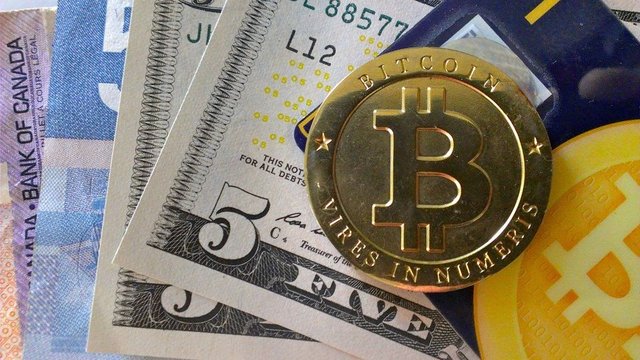
In recent weeks, Bitcoin and the cryptocurrency market have been repeatedly barraged with negativity by the communist nation of China with their cryptocurrency lockdown. However, despite their recent political decisions, several of the world’s countries are opening up to Bitcoin and embracing the change in their economies. Let’s take a look at a few.
Venezuela
An interview with Daniel Osorio of Andean Capital Advisors on CNBC indicates that the country may soon ‘Bitcoinize’ completely. In order to pay for lunch, locals are beginning to accept only Bitcoin or money wires of foreign currencies. The problem, according to Osorio, is that unlike Zimbabwe and other nations where hyperinflation has taken its toll, Venezuela does not have access to enough physical money to manage the economy.
Locals have, therefore, turned completely to Bitcoin in order to function economically. Since Bitcoin is independent of the black market for Bolivars, it represents a fixed exchange platform for business. Source: Cointelegraph
Malaysia
A recent statement by Malaysia’s Bank Negara governor Tan Sri Muhammad Ibrahim at the Global Symposium on Developing Financial Institutions would indicate that Malaysia may be the next to open its doors to Bitcoin. The governor addressed a number of different financial sectors but stated clearly that the Bank Negara was working on cryptocurrency guidelines. He said: “We hope to come out with guidelines on cryptocurrencies before the end of the year: in particular, those relating to anti-money laundering and terrorist financing. We want to ensure that there are clear guidelines for those who want to participate in this sector.” Malaysia already has a fantastic reputation in the cryptocurrency world. Although this statement is not explicit, it is suggesting that the government will legalize Bitcoin, and if passed, will create a mass of new investment into the country.
Source: Cointelegraph
Japan
Although seemingly mistaken as following in Chinas wake, Japan has taken a different approach and aims to closely monitor cryptocurrency exchanges, starting from next month. According to the Japan Times, the increased scrutiny is aimed to ensure that the companies comply to the revised payment services law, passed in April this year, which set out operational standards for exchanges, as well as recognizing Bitcoin as a form of legal tender.
An FSA executive reportedly indicated the surveillance is intended both to regulate the exchanges and to ensure the healthy growth of the cryptocurrency market, saying: “We pursue both market fostering and regulation enforcement. … We aim for sound market development.” The payment services law passed earlier this year established anti-money laundering and know-your-customer rules for the exchanges. The law is also intended to enforce security standards aimed to protect the exchanges from the risk of cyberattacks. The law specifies that all exchanges must report to the authorities by the end of September to confirm that they are compliant with the new rules. The FSA also has the remit to conduct on-site inspections if deemed necessary. To monitor the over 20 cryptocurrency exchanges operating in Japan, the FSA last month established a specialized surveillance team, reportedly comprised of 30 staff members. Japan is no stranger to cryptocurrency based fraud, with 33 cases, representing more than a half of million dollars-worth of losses, reported in the first seven months of 2017. Even more notably, in 2014, the now-notorious Japan-based bitcoin exchange Mt Gox collapsed, resulting in the loss of millions of dollars in customers’ funds. Japanese lawmakers have previously cited the exchange’s failure as a key driver in the move to regulate the cryptocurrency industry.
Source: Coindesk
Russia
Anatoly Aksakov, who leads the State Duma's financial markets committee, told Russian media this week that next steps involve the formation of a dedicated working group to address the issue. Further, he said that he would be meeting with officials from Russia's central bank and the Ministry of Finance in the coming days.
"If we agree on the main approaches in the coming week, I think that by autumn, by the end of the fall session, we will be able to adopt this law in order to provide a legal space for the development of this market."
The comments come amid a flurry of news from Russia on the cryptocurrency front. The country's deputy finance minister, for example, said earlier this week that he thinks Bitcoin trading should be restricted to qualified investors. The chief internet advisor to president Vladimir Putin, meanwhile, unveiled the formation of a new blockchain and cryptocurrency advocacy group earlier this week.
Source: Coindesk
United Nations
Although not a country, the United Nations is in the final stages of what could be “one of the most epic blockchain projects of all time”, utilizing the Ethereum blockchain. The first successful test of the Ethereum-based solution was conducted in January in the Sindh province of Pakistan. There, 100 people received 3,000 rupees and the equivalent value in food via transactions authenticated on the Ethereum testnet.
Source: Coindesk
With Bitcoin continuing to rise in popularity; and in some countries infamy, it is to no surprise that many countries and governments have started looking into utilizing Bitcoin and blockchain technologies. Still, Bitcoin and other cryptocurrencies have a host of imperfections. Among these are theft, huge fluctuations in value, no way to recover lost passwords, and being much more difficult and complicated to use than traditional cash. Nonetheless, we have to wonder if full-scale disruption of the banking system is not far in the future. That thought also may be disrupting the sleep of big bank CEOs. As the days go by, Bitcoin sovereignty seems closer to becoming a reality.